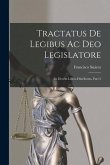"...the Law of War, in common with the rest of International Law, has been disentangled from theology, ethics, the legislation of Justinian, the precepts of the canonists, and feudalism..." -Thomas Erskine Holland, Introduction, Tractatus De Bello, De Represaliis et De Duello (1917) Tractatus De Bello, De Represaliis et De Duello (1917) by Giovanni da Legnano was originally published in Latin in AD 1360. This edition in English and Latin was originally translated by J. L. Brierly and edited by Thomas Erskine Holland. The text is thought to be one of the earliest to outline international law with a specific focus on war. Also included in this volume is a biography of Legnano written by Holland, a collotype of the Bologna manuscript, and a reproduction of the first (imperfect) edition of the work. Any reader with an interest in the basis for international law will want to explore this book in depth.
Hinweis: Dieser Artikel kann nur an eine deutsche Lieferadresse ausgeliefert werden.
Hinweis: Dieser Artikel kann nur an eine deutsche Lieferadresse ausgeliefert werden.








